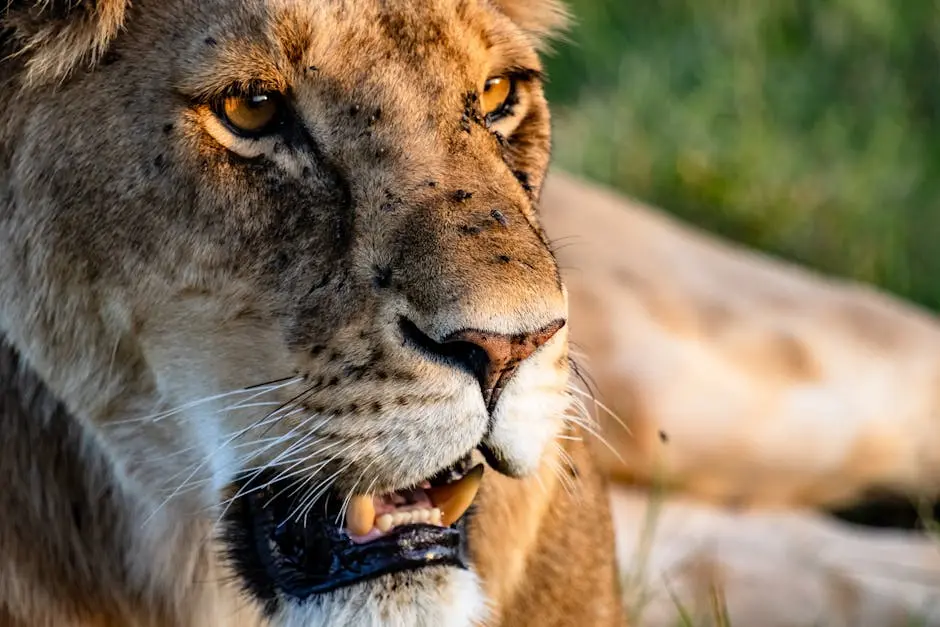
Planning a safari in the breathtaking Masai Mara, Kenya requires careful considerations and preparations. Knowing what to expect and how to prepare will enhance your experience and ensure that you have a memorable adventure in this iconic wildlife reserve. This guide outlines essential steps to effectively prepare for your safari.
Research the Best Time to Visit
Understanding the seasonal wildlife movements and weather patterns is crucial to selecting the optimal time for your safari.
The dry season, typically from July to October, is popular for safari in Masai Mara, Kenya, as animals are easier to spot. During this period, the grass is short, and wildlife congregates around water sources, making for excellent game viewing.
However, visiting during the wet season, from March to June, can also be an enchanting experience. The landscape blooms beautifully, and you get to witness the vitality of nature. Each season has its unique beauty and set of opportunities, so weigh your options carefully.
Ultimately, choosing the right time depends on your interests: whether you seek the thrill of the Great Migration or prefer the tranquility found in the quieter months.
Choose the Right Safari Package
Consider what type of safari experience you want and choose a package that suits your interests and budget.
Decide whether you prefer a private safari, allowing for personalized itineraries, or a group safari, which can provide a more social experience. Each option offers unique advantages; for instance, private safaris often result in fewer encounters with other tourists.
Explore various activities included in the packages. Some may focus more on game drives, while others may incorporate walking safaris or cultural experiences with local Maasai communities.
Don’t forget to check what amenities and accommodations are part of the package. Luxurious lodges offer more comfort, while tented camps can provide a more immersive experience in nature. Your choice ultimately defines your comfort level while exploring this wild paradise.
Prepare Your Travel Documents
Ensure your passport is valid and check visa requirements for Kenya to avoid any travel disruptions.
Visit the official Kenyan government website or your local embassy to stay updated on any changes in visa regulations. Visa on arrival and e-visa options are available and can simplify the process.
Additionally, make copies of all important documents—passport, visa, travel insurance, and itinerary—keeping them both digitally and in printed form. This small precaution can save you a lot of stress in case of loss or theft.
Pack Essential Gear and Clothing
Bring appropriate clothing, binoculars, and photography equipment to fully enjoy the safari experience.
Opt for lightweight, breathable clothing in neutral colors. Bright colors can disturb wildlife, so earthy tones are recommended. Don’t forget to pack a wide-brimmed hat, sunglasses, and sunscreen to protect against the sun.
Essential gear also includes a sturdy pair of binoculars for spotting wildlife from a distance. A quality camera with a good zoom lens will help you capture breathtaking moments. An extra memory card is crucial; you wouldn’t want to miss an unforgettable image.
Lastly, a first-aid kit can be invaluable for minor illnesses or injuries. Be sure to include insect repellent to fend off mosquitoes, especially in the evenings.
Stay Informed About Health and Safety
Research necessary vaccinations and travel insurance options to protect your health during the trip.
Consult your doctor at least 6-8 weeks before your trip to discuss vaccines that may include Hepatitis A, Typhoid, and Yellow Fever, especially if traveling from an endemic region.
In terms of safety, always stay in touch with your safari guide and follow their directions during wildlife encounters. Understanding animal behavior can be crucial in keeping safe.
Travel insurance is highly recommended. It not only covers unexpected medical expenses but also protects against trip cancellations and lost belongings. This peace of mind allows you to fully immerse yourself in the wonders of the Masai Mara without worry.
Know the Basics of Safari Etiquette
Learn the dos and don’ts of wildlife observation to ensure your safety and the protection of the environment.
Never feed or attempt to touch wild animals; this can be dangerous and is harmful to their natural behaviors. Instead, enjoy observing them from a distance, using binoculars or zoom lenses.
Keep noise levels low. Animals can be startled by loud sounds, and keeping a respectful silence will enhance everyone’s experience. Additionally, don’t forget to take your rubbish with you—protecting the environment is part of being a responsible traveler.
Also, always respect cultural sites and local communities. Engaging respectfully with the Maasai people enriches your experience while fostering good relations between tourists and locals.
Final Thoughts on Your Safari Preparation
By following these steps, you will be well-prepared for an unforgettable safari experience in the Masai Mara. Ensure you plan ahead, pack wisely, and stay informed to make the most of this incredible adventure.
